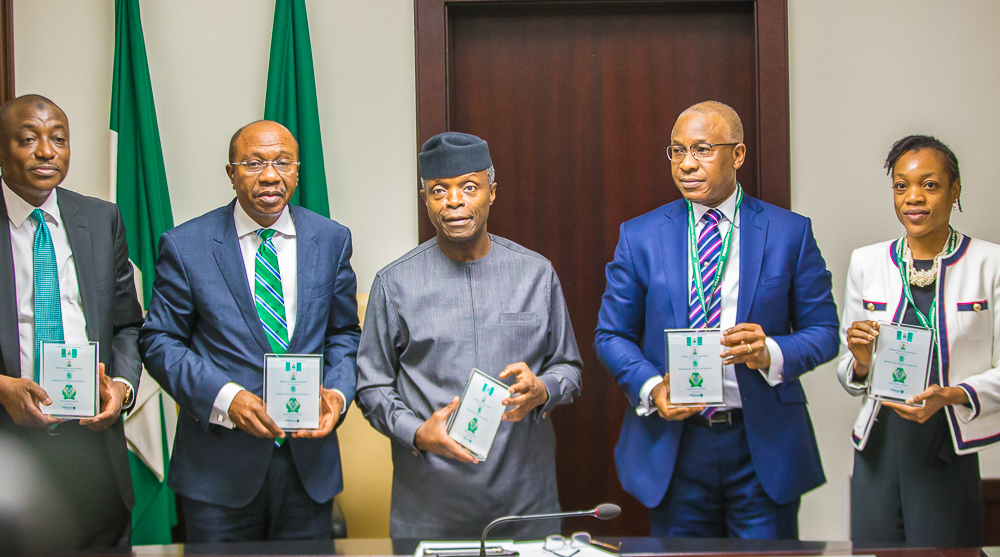
Why Privatization To Credible Investors Is Key – Osinbajo
*FG further divests interests in NSPMC
The sale of public assets to credible investors as a fundamental economic philosophy of the Buhari administration will create opportunities for the injection of innovative ideas and expertise as evident in the management of the Nigerian Security Printing and Minting Company (NSPMC) in the past four years, according to Vice President Yemi Osinbajo, SAN.
The Vice President stated this on Tuesday during the signing ceremony for the sale of 21 per cent shares in the Nigerian Security Printing and Minting Company (NSPMC) to the Central Bank of Nigeria (CBN).
According to Prof. Osinbajo, “the very idea of selling public assets to credible investors is one that is fundamental to our own economic philosophy, namely; that government is not a business person and as such should stick to its regulatory and incentivizing role and allow the private sector to take the risks and be supported where possible.”
“There are new dimensions and ideas, and it is just the private sector that can be at the cutting edge of technology and innovation. So, the private sector brings in that expertise and that innovative edge.
“And we think that this particular union between the CBN and De La Rue will be possibly one of the best moves that have occurred especially in the Nigerian Security Printing and Minting Company,” the Vice President added.
Speaking on the importance of the present administration’s privatization programme, Prof. Osinbajo said: “the privatization of the Nigerian Security Printing and Minting Company (NSPMC) is an important event in our privatization journey.”
He said: “I think that this is an important event in our privatization journey. Many of us will recall that in the last 20 years or so, over 140 publicly owned companies have been privatized and this is perhaps one of the largest that have been privatized so far.
“The whole idea is that there are synergies that will come from public and private sector especially in these kinds of complex processes. Security printing has taken new dimensions; it is no longer what it used to be. There are those who would say that it is more of technology than merely security printing.”
Earlier in his remarks, the Director General of the Bureau of Public Enterprise (BPE), Mr Alex Okoh, said the sale of Federal Government’s 21 per cent shares in the NSPMC was to continue the revitalization programme already instituted by the management of the Central Bank of Nigeria in the past four years.
He said CBN’s strategic investment in the company had resulted in the increase in revenue at a compound annual growth rate of 15.75 per cent since 2013 and a gross profit from N5.4 billion in 2013 to N12.4 billion in 2016.
According to Okoh, “the company’s total assets have grown from N63.8 billion in 2013 to N100 billion in 2016.”
He said the sale of NSPMC to the CBN would further improve the company’s capacity to tap into the global and African market for security printing put at $27.2 billion in 2017 and estimated to grow at about 4.8 per cent annually to $34.3 billion by 2022.
On his part, the Central Bank of Nigeria Governor, Mr Godwin Emefiele, said the NSPMC had operated at a loss prior to the strategic investment by the CBN.
He added that arrangements were underway for the company to commence the printing of sensitive documents such as the Nigerian international passport among others.
The event was attended by representatives of private investors, De La Rue PLC and other members of the National Council on Privatization.

